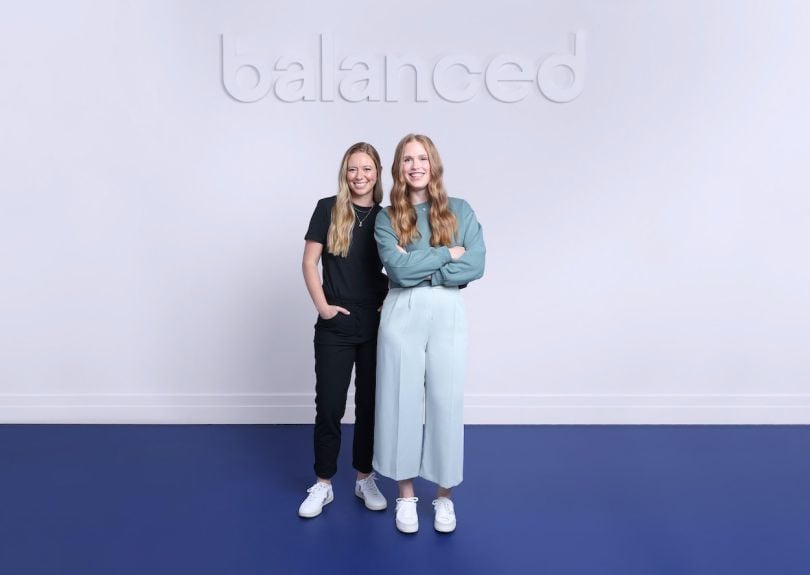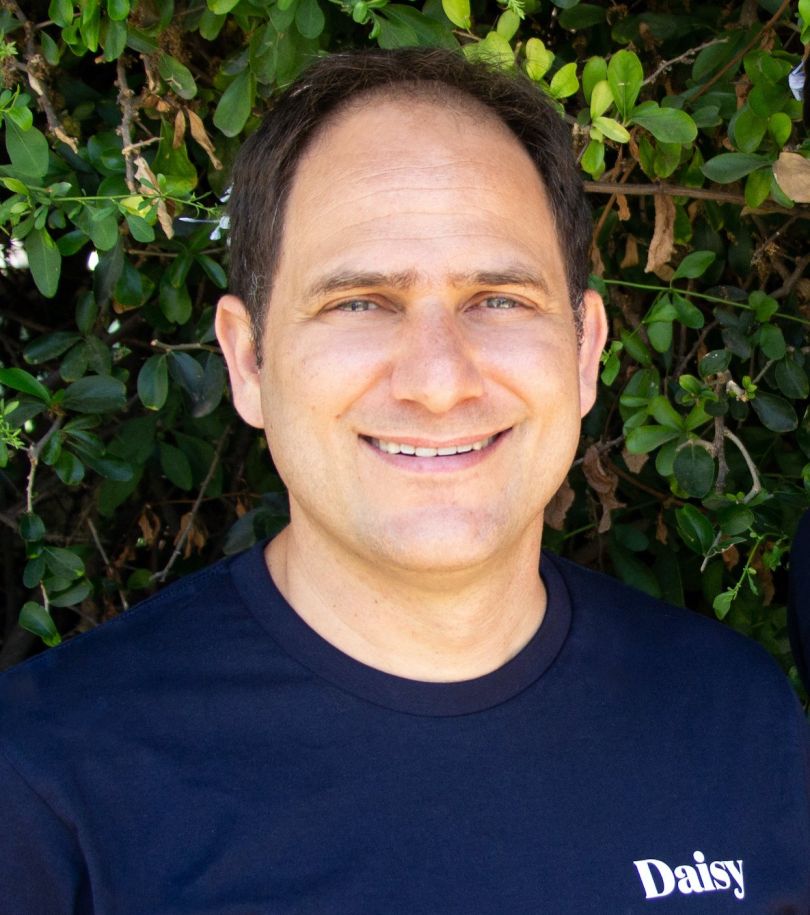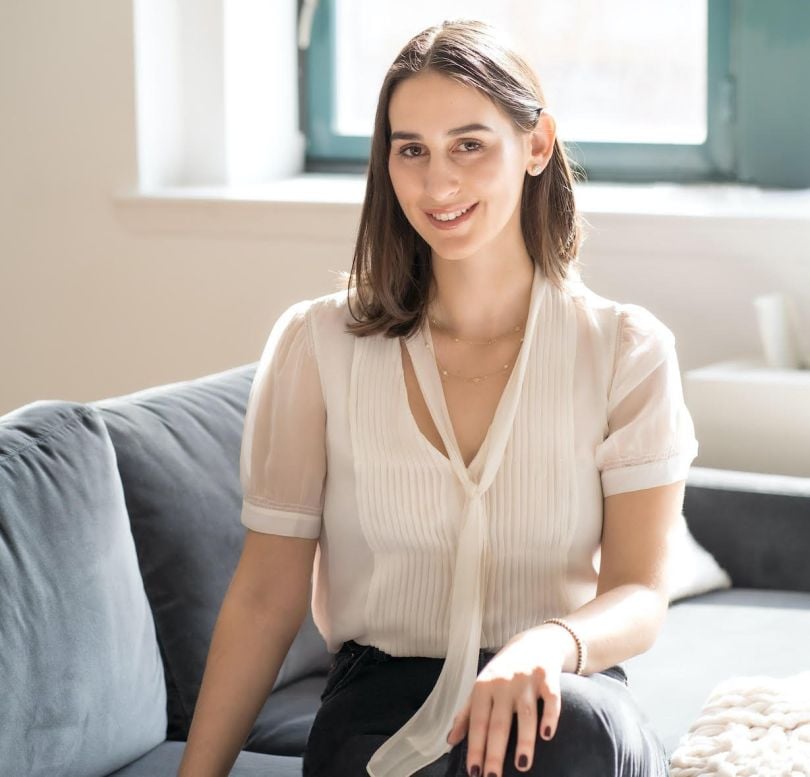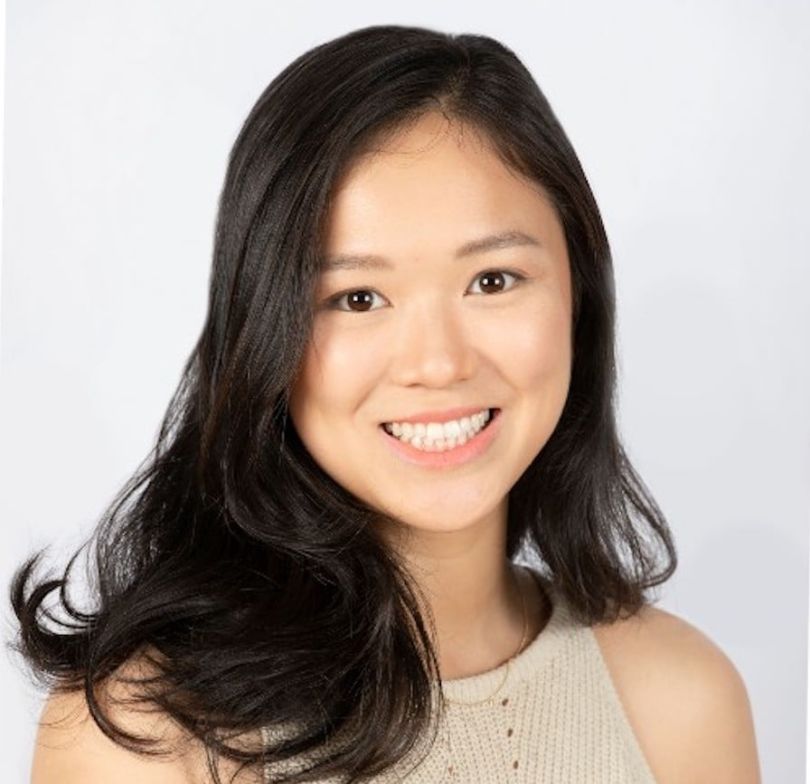Sure the latest initiatives from the Teslas, Apple and Googles of the industry tend to dominate the tech news space — and with good reason. Still, the big guns aren’t the only ones bringing innovation to the sector.
In an effort to highlight up-and-coming startups, Built In has launched The Future 5 across 11 major U.S. tech hubs. Each quarter, we will feature five tech startups, nonprofits or entrepreneurs in each of these hubs who just might be working on the next big thing. You can check out last year’s round-ups here.
***
Once again, the New York tech scene had an incredible year, with startups here raising massive amounts of money and hitting even bigger valuations. Over the summer, NYC was deemed the second-best hub for cloud companies behind San Francisco, with 15 local standouts bringing in more than $5 billion in funding, according to Forbes’ annual Cloud 100 ranking. And more than 200 companies based here made the coveted Inc. 5000 list this year, achieving a combined total revenue of more than $10 billion, according to the magazine.
All told, NYC companies in sectors like alternative investments, mental health and proptech had an especially lucrative 2021.
But a new year means a new crop of exciting startups to keep an eye on, and this city is full of them. From property management to grocery delivery, these local innovators are reimagining some of today’s buzziest industries — proving the best is yet to come here in the Big Apple.
Built In's Future 5 Up-And-Coming NYC Startups, Q1 2022
- Balanced (Fitness Tech)
- Daisy (Proptech)
- Doola (Business Tech)
- Parallel (Teletherapy)
- Umamicart (Grocery Delivery)

Balanced (Fitness Tech)
It’s safe to say we are in the golden age of home fitness. Tech companies like Mirror, Hydrow and Tempo have had massive success amid the pandemic, allowing anyone to get their sweat on at home while connecting with peers. However, NYC entrepreneur Katie Reed argues that there’s a key demographic that’s been left out of this movement: Baby boomers.
“There are currently over 54 million Americans who are 65+ and are expected to grow to over 80 million by 2040,” Reed told Built In, citing data recently collected by the Administration for Community Living. “But older adults don't have easy access to a digital-first brand that inspires, personalized content they can find anywhere else, and a connection to a community they are proud to be identified with. They want to be inspired, energized, and feel a connection to their bodies with movement.”
That’s why she and her co-founder Kelly Froelich created Balanced, a digital fitness platform designed specifically for what Reed calls the “healthy aging.” It does this by taking in each member’s health information, and offering personalized on-demand fitness plans designed by Dr. Rob Landel, the director of physical therapy at the University of Southern California. Balanced also offers daily, live, virtual classes led by professional trainers.
Although neither are part of the baby boomer generation themselves, this issue is personal for both Reed and Froelic. When the Covid-19 pandemic first hit, Reed flew down to Palm Springs to be with her grandmother. The two of them bonded over reading the same books and cooking together, but found that the same high-caliber home workouts made available to Reed did not exist for someone of her grandmother’s age. Meanwhile, Froelich came to a similar realization while virtually training them over FaceTime with cardio boxing.
We prioritized building with speed because we wanted to reach a demographic that has been left out of digital fitness.”
Since then, Reed and Froelich have acted fast, and began creating trainer-led videos in their professional production studio in Dumbo in just six months. They’ve also garnered the support of several prominent investors, including Primary Venture Partners and angels from ClassPass, Cityblock and Stack Overflow.
“We prioritized building with speed because we wanted to reach a demographic that has been left out of digital fitness. And we are already starting to see that impact with our members,” Reed said. “[Our members have] pushed themselves to new limits with our trainers. They exercise, have fun, and keep coming back week after week. Hearing feedback about how Balanced has changed the lives of our members, an underserved demographic that has previously felt ignored by Silicon Valley is nothing short of an accomplishment.”

Daisy (Proptech)
Tech has made virtually every aspect of life easier. From on-demand grocery delivery to automated tax filing, it seems like everything can be done instantly and from the comfort of your couch. But Yotam Cohen says property management has largely been left out of this shift — a lesson he learned the hard way as a board member of his own condo building. As a tech entrepreneur, he says he was shocked at how antiquated the process and tools were.
“The property management industry is built on people and relationships. This forces buildings to be dependent on a single property manager for the success of their building,” Cohen said, adding that this hinders companies from effectively scaling and maintaining their buildings. “By automating a lot of the tasks required to run a building successfully, we can focus our resources on the experience. By connecting all building data to our network, we can drive valuable insights to bring even more value.”
To do this, he created Daisy, a new end-to-end property management company for residential buildings. By combining its tech with human property managers, the platform aims to provide round-the-clock support, streamlining all facets of building operations and reducing costs. When a building joins Daisy, all of its products and documents can be uploaded to one dedicated dashboard, and all residents can use the app to connect to managers, stay up to date on building activity and pay bills.
We’ve been able to fundamentally change how buildings are being managed — and provide an amazing experience to residents and board members.”
Daisy only came out of beta last July, and already claims to manage hundreds of units throughout New York City. The startup also raised a $4.5 million seed round in 2020, which allowed them to run their beta program and eventually launch.
That a company like Daisy is succeeding here in NYC should come as no surprise. New York has been a hub for real estate innovation for decades, and this has only been heightened amid the pandemic. In order to survive the harsh realities of Covid-19, this notoriously tech-averse industry had to digitize fast, and Cohen says this trend will only strengthen as people continue to see the value in what this kind of technology provides.
“Real estate, and property management in particular, is a very traditional industry that’s been around for over a century. In a very short amount of time we’ve been able to fundamentally change how buildings are being managed — and provide an amazing experience to residents and board members,” Cohen said. “I think the companies that will really succeed are those that focus on the consumer experience, and effectively balance automation and people. At Daisy, we have our own idea of what buildings of the future will look like and how they'll run, and we’re working to build the right ecosystem now, to be able to fulfill that vision.”

doola (Business Tech)
A recent study found that a record 5.4 million Americans filed for paperwork to start their own business in 2021, up from the previous record of 4.4 million in 2020, indicating that entrepreneurship is booming amid the pandemic. This is especially true of the “creator economy” — a class of social media influencers, bloggers, videographers and various other content creators that is now 50 million people-strong.
But it turns out that the process of starting one’s own business is pretty complex, which is why NYC entrepreneurs Arjun Mahadevan and JP Pincheira have created doola, a startup that helps folks from around the world start a business in the United States.
“Today, there has been a shift in society towards having more control over how we spend our time, being your own boss, and feeling fulfilled in your job. When a fan sees a creator doing what they love, they want to follow that path, not a path that leads to a cubicle,” Mahadevan told Built In. “It’s time for the paperwork to keep up with the demands of the modern entrepreneur.”
It’s time for the paperwork to keep up with the demands of the modern entrepreneur.”
Founded in 2020, doola provides founders with all the tools they need to set up an LLC in the United States to ensure that they can collect payments, build credibility and stay within the confines of the law — and all without needing a social security card. The platform offers things like company formation services, an employer identification number for tax purposes, a U.S. address, phone number and bank account, tax support and even $50,000 worth of perks like tech tools, tax rewards and banking credits. In just a couple of years, says Mahadevan, hundreds of companies have been launched with the help of doola.
The startup has also caught the attention of some pretty prominent VC firms. The $3 million seed round it closed a couple months ago was led by Nexus Venture Partners, with participation from early stage investors like Hustle Fund and YCombinator. Now, Mahadevan says the plan is to “heavily invest” in the product and grow its team, commending NYC’s “incredible” tech talent pool and global draw.
“New York City is one of the most electric cities in the world; just walking down the street is energizing and that’s the type of energy a startup with our global ambition needs,” he said. “Having our HQ in what is one of the most global connected cities in the world is perfect for us, as we have customers globally who are trusting us to confidently launch and grow their US business.”

Parallel (Teletherapy)
Growing up with ADHD, Diana Heldfond considers herself to be “one of the lucky ones.” She was tested and diagnosed at an early age, was given access to resources so she was set up for success, and her mother took a lot of time to understand the condition and what was going on in her child’s classroom. Heldfond went on to graduate from Georgetown University and have a successful career in investment banking.
This, unfortunately, is not the experience of a lot of children with learning differences today. Heldfond says that, although testing for learning disabilities is technically free within the U.S. public education system, qualifying for these evaluations isn’t easy, and they usually aren’t very comprehensive. Private evaluations can cost as much as $15,000, and typically take months to be administered, leaving these kids struggling with no support for months.
To help solve this problem, Heldfond decided to ditch her investment banking career during the pandemic and create Parallel, a telehealth startup for students with learning disabilities and their families.
Parallel starts with a psychological evaluation, which aims to get to the root of the problem or challenges a given child is facing in the classroom. Then it offers a variety of support services designed to specifically address those challenges. These include things like educational therapy — targeted interventions that help students build the foundation for academic success — or executive function coaching, which helps with “real life skills” like socializing, organization and time management, explained Heldfond.
The historical way of saying, ‘okay, education is done by the school district and everything else is technically healthcare’ is just not the way of the future.”
The goal, she added, is to create a sort of “umbrella network” of service providers in order to be a kind of “one-stop shop” for children with learning differences and their families. Long term, this can be applied to more than just strictly education, but the entire breadth of a child’s experience, which so often can’t be put into one box.
“Kids are very complex these days, right? No surprise, we’re all really complex these days,” Heldfond told Built In. “I think the historical way of saying, ‘OK, education is done by the school district and everything else is technically healthcare’ is just not the way of the future. It’s not the way students process things.”
Indeed, Parallel has a lot of potential, which has been noticed by investors like Vine Ventures, Global Founders Capital and Great Oaks, all of whom participated in Parallel’s recent $2.8 million seed funding round. The money is being used to grow its core team and expand across the United States.
More broadly, Parallel occupies two industries that have become increasingly important amid the pandemic — virtual learning and teletherapy — so this level of growth is not likely to slow down anytime soon.
“Covid has been almost like a two-year case study to really prove out the validity of the telemedicine model and the tele-assessment model,” Heldfond said. “It’s been really amazing, I think, in today’s world — where you’ve got more students than ever requesting special ed services and a massive shortage of school psychologists and special ed teachers — to see Parallels be able to come in and bridge that gap.”

Umamicart (Grocery Delivery)
NYC-based entrepreneur Andrea Xu describes herself as a “third-culture kid.” She grew up in Spain with her Chinese immigrant parents, who owned and operated a Chinese restaurant in Madrid, and has spent most of her adult life in the United States — specifically here in New York. Like a lot of folks with multicultural backgrounds, Xu says she has always used food and cooking as a way to connect to her roots. But doing that hasn’t always been easy.
“I love cooking dishes that incorporate multicultural flavors, but sourcing all the ingredients needed to cook my favorite recipes often involves visiting multiple different grocery stores — the Asian sections of so-called ‘ethnic’ aisles at mainstream grocery chains just don’t cut it,” Xu told Built In. “I just couldn’t find a solution for someone like me who has a strong appreciation for different Asian cuisines, is discerning about these flavors but appreciates context and curation, and is also short on time and appreciates a good digital experience.”
Since she couldn’t find it, Xu decided to make it herself, and has teamed up with co-founder Will Nichols to launch Umamicart — an online grocery store and delivery service offering hundreds of Asian products. The site offers various staples and pantry essentials, as well as specialty items, recipe inspirations and even kits for making specific dishes like sushi and dumplings.
In short, Xu says the goal is to disrupt the grocery store industry by making the ethnic food aisle “completely obsolete.” And Umamicart certainly isn’t the only player looking to change how we shop for our food. On-demand grocery delivery startup JOKR hit unicorn valuation last month shortly after launching in NYC; and e-grocer Instacart recently hit a whopping $39 billion valuation after pandemic-fueled growth.
We’ve noticed that consumer behavior is shifting to value a direct and closer relationship to the source more and more.”
Since its launch last March, Umamicart has been experiencing tailwinds, too. It raised $6 million in seed funding last month and has expanded geographically. Today, it is available in NYC, greater New York state, New Jersey, Connecticut, Massachusetts, Pennsylvania, Delaware, Virginia, Maryland, Massachusetts, and Washington, D.C. Xu says there are plans to expand even more in the near future to keep up with demand.
“We’ve noticed that consumer behavior is shifting to value a direct and closer relationship to the source more and more,” Xu said. “For a big part of the population, mainstream grocery stores are the gateway for consumers to try different Asian products. But I see consumers continue to increasingly seek more specialized and thoughtful grocery experiences like Umamicart to dive deeper into Asian cuisine, and beyond.”
In addition to all this growth, Xu also says Umamicart has been very careful to stick to its roots, and supports several charitable organizations focused on the Asian and Pacific Islander community, including Send Chinatown Love, AAPI Community Fund and Heart of Dinner, donating more than 600 pounds of fresh food to NYC’s elderly Asian community. Plus, of the roughly 40 suppliers Umamicart works with, Xu says 95 percent are Asian American-owned and led.




